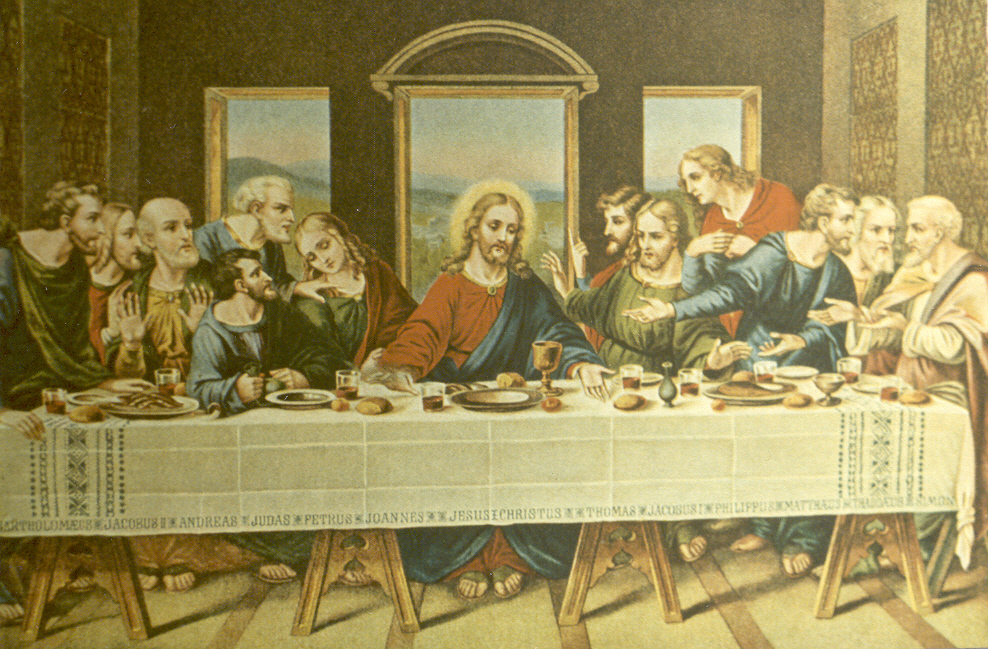
Return to
Index The Catholic Faith
Return to Level
Two Topic Index
Home Page
Jesus once asked his disciples, "Who do you say that I am?" Peter answered, "You are the Messiah, the Son of the Living God." Jesus rejoiced at this answer because, he said, it was a revelation from God.
Jesus then declared that he would make Peter the Rock upon which he would build his Church. And he said, "I will entrust to you the keys of the Kingdom of Heaven. Whatever you declare bound on earth shall be bound in Heaven; whatever you declare loosed on earth shall be loosed in Heaven" (Mt 16:19).
One
of the matters over which the Church has authority to bind and to loose is the
administration of the sacraments. In other words, the Church has the power
to make rules about these matters. The Church specifies the times and
circumstances for the Eucharistic Sacrifice and for distribution of Holy
Communion. She teaches us that there are three necessary conditions for
the worthy reception of Holy Communion. We should:
1. be in the state of
grace;
2. have a right intention;
3. observe the Eucharistic fast.
Let us look at these conditions.
State of Grace
The Church asks us, out of reverence for Christ, to be in the state of grace. This means that we may not go to Communion if we have committed a mortal sin and have not yet confessed it. To receive Communion in mortal sin would be another mortal sin, called sacrilege, the misuse of something holy. To receive Jesus without being in the state of grace would make us like that man in Jesus' parable who came to the wedding feast without being properly dressed.
Right Intention

To have the right intention, we must be aware of the meaning of the Eucharist: that it is Jesus himself whom we receive under the appearances of bread and wine. This means that we should receive him with humility and modesty, recognizing the fact that God is our Creator and we are his creatures.
How we behave at Mass, especially at Communion time, should reflect all these important attitudes. Looking around and talking to friends expresses disrespect and ignorance and gives a bad example. We must intend to receive Jesus with faith, understanding, reverence, and a strong desire for the spiritual treasures which are to be had in the Blessed Sacrament.
Eucharistic Fast
The Eucharistic fast is a means of preparing to receive Jesus with ample time and consideration. It is a sign of our willingness to free ourselves from our own desires so that we can live as true followers of Christ. We observe the fast by eating no food and drinking no liquids except water and medicine for our hour before receiving Communion. Those who are advanced in age or suffer from any infirmity, as well as those who take care of them, can receive the Holy Eucharist even if they have taken something during the previous hour.
Thanksgiving
Because the gift we receive in the Eucharist is so great, we should make a sincere thanksgiving afterwards. We may do so in set prayers or in our own words, expressing our own thoughts and hopes and fears, our troubles and our joys, our needs and our petitions.
Obligation
After all we have said about how wonderful this sacrament it, it may be a surprise that the Church has had to make a rule that requires all the faithful to receive the Eucharist at least once a year during the Easter season. The obligation is binding on all who have made their First Communion.
Viaticum
Communion given to one who is dying is called Viaticum, a Latin word meaning "provisions for a journey." It is well named. All through life Holy Communion has helped us get ready for a holy death. Viaticum is the final preparation for the journey from life on earth, through death, to life in Heaven.
So one departs for that Kingdom about which St. Paul said: "Eye has not seen nor ear heard, nor has it so much as entered man's mind, what things God has prepared for those who love him" (1 Cor 2:9). We shall thank God then for every worthy and ardent Communion we have received.
Sweetest Jesus, may your most Sacred Body and Blood be the delight and sweetness of my soul, safety and firmness in every temptation, joy and peace in every tribulation, light and strength in every word and work, and final protection in death. Amen. St. Thomas Aquinas
Used with the permission of The Ignatius Press 800-799-5534
Return to
Index The Catholic Faith
Return to Level
Two Topic Index
Top
Home Page